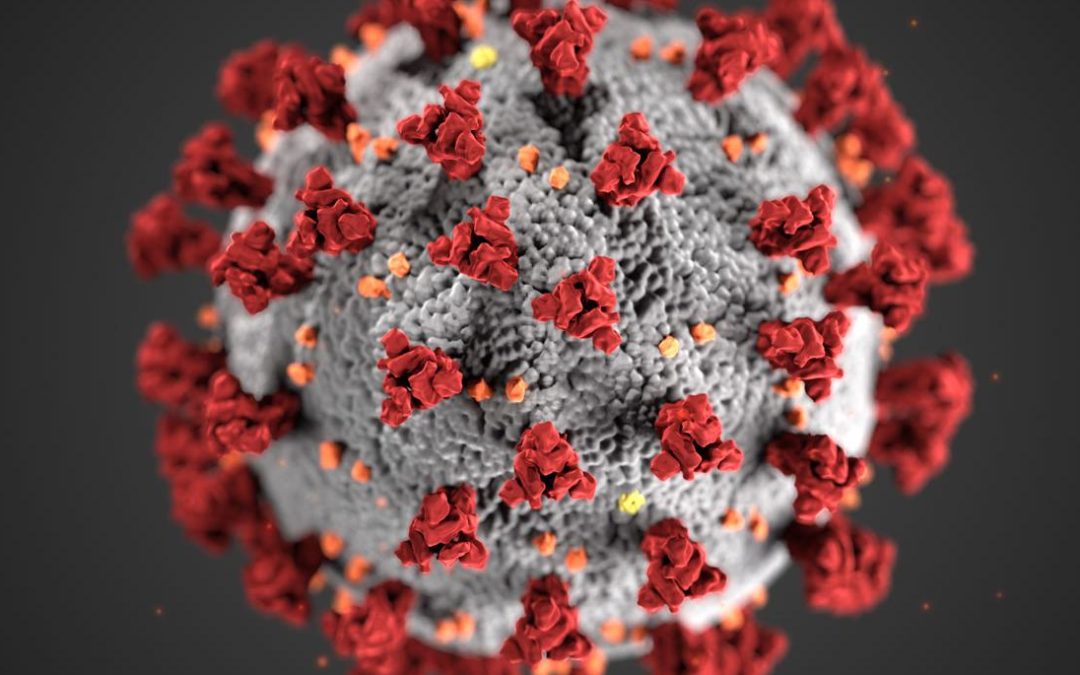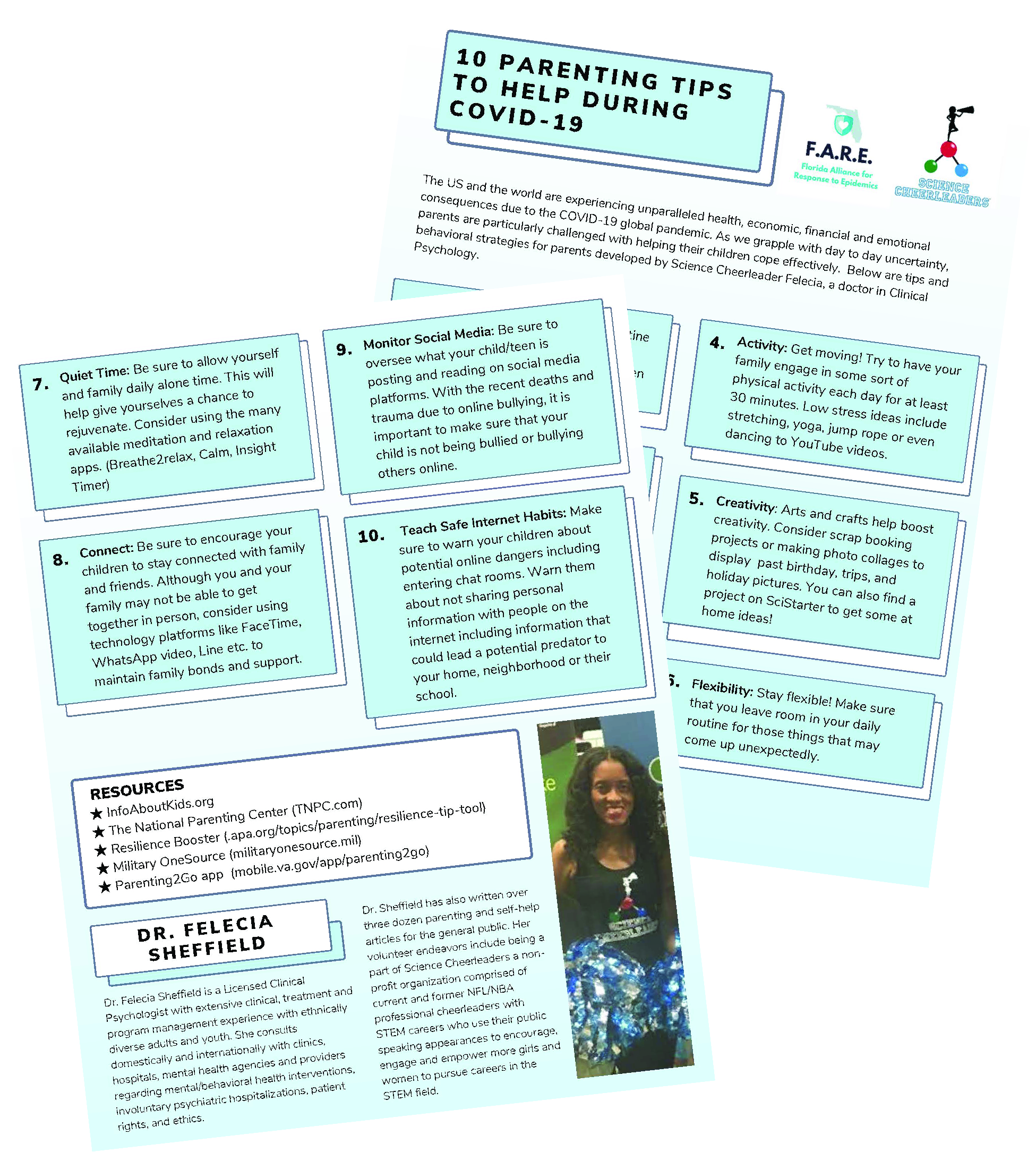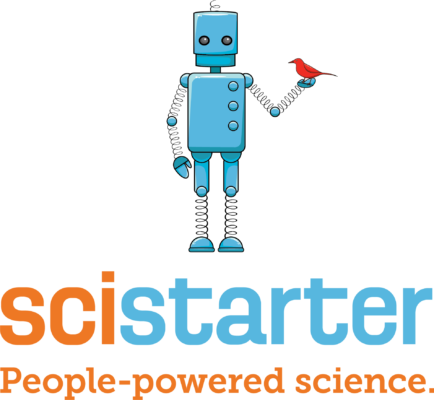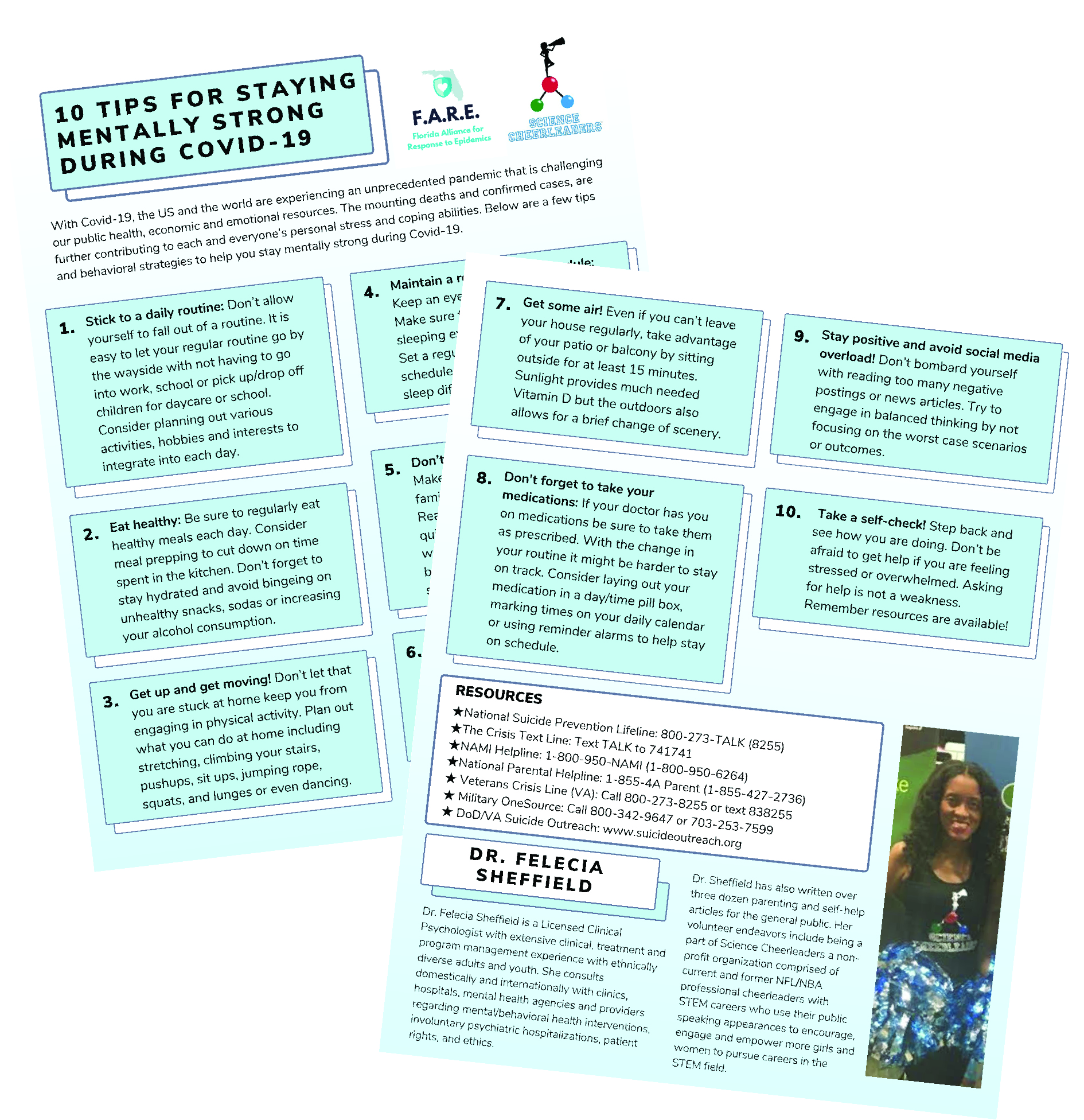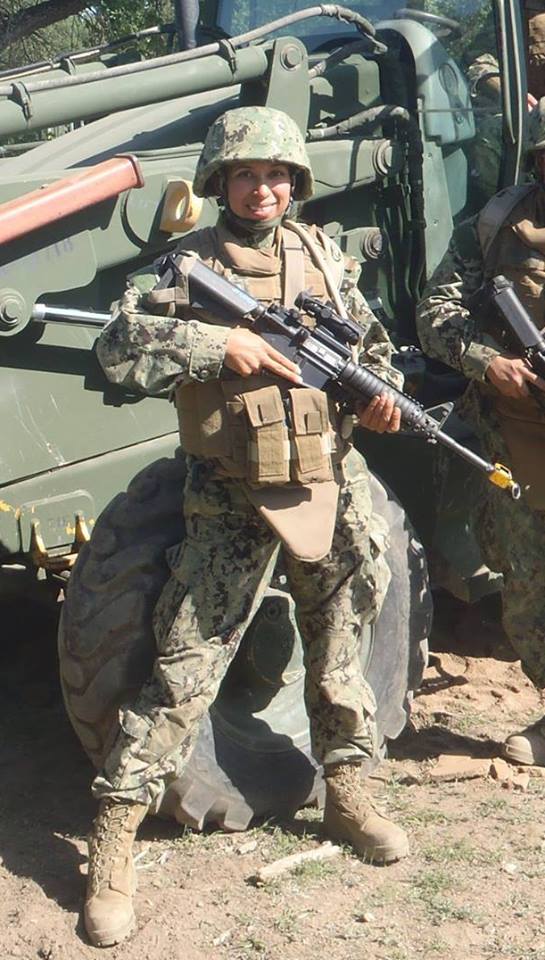Hi science fans! Science Cheerleader Dr. Wendy here to tell you that we’re partnering with FARE (the Florida Alliance for Response to Epidemics) and the UF-VA UNESCO Bioethics Unit that is affiliated with the Department of Psychiatry at the University of Florida Psychiatry Medical School to bring you COVID-19 Awareness Week! We’ll be posting tips for how to stay happy and healthy on our Facebook, Instagram, Twitter, and YouTube platforms throughout the week, but as a blog reader, you get a sneak peak!
We’ve all made a lot of effort and sacrifices the flatten the curve. Now that businesses and beaches are starting to reopen, it’s more crucial than ever that we all continue to do things to keep the spread of COVID-19 low. Check out the videos and tips from our SciCheers in healthcare on how to stay safe and help keep COVID-19 at bay.
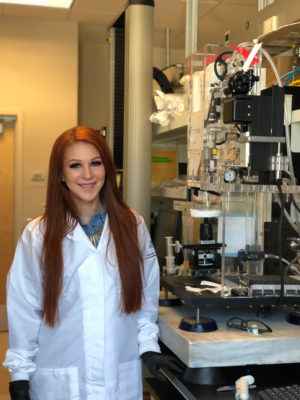
Tips for Staying Safe and Healthy
Stay Home
Practice Social Distancing and Wash Your Hands
Wear a Fabric Mask
How To: Make a fabric mask from a scarf
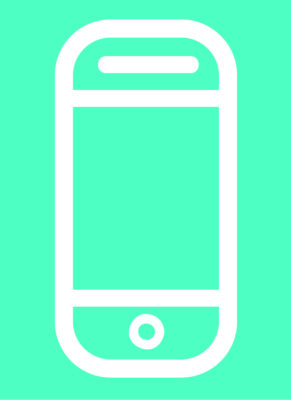
Stay in touch with friends and family digitally by scheduling video hangouts over FaceTime, Skype, Zoom, WebEx.
Netflix Party is a Google Chrome extension that allows you to watch a Netflix movie simultaneously with your friends. There’s even a chat window!
FaceTime not Face Time
Work (Out) From Home

Your local gym may have closed, but that doesn’t mean you need to stop exercising. Stay healthy by starting a home workout routine (hello, Youtube fitness + yoga vids). Don’t forget you can still go on jogs and bike rides outside!
For more tips on how to enjoy social distancing and for other information and tips, click here to visit FARE’s Facebook page.
Have kids at home?
Dr. Felecia has 10 parenting tips for helping children cope effectively.
Looking for something to do while self-isolating other than baking banana bread?
Our sister site, scistarter.org has a list of citizen science projects you can do form home to help scientists fight COVID-19. Help identify behaviors that influence risk; crowdsource the COVID-19 pandemic in real time; and play an online game to fold and design proteins for scientific research!
Tips for Staying Mentally Healthy
Dr. Felecia also has tips for adults to help you get through these uncertain times.
Stick to a Daily Routine
Don’t allow yourself to fall out of a routine. It is easy to let your regular routine go by the wayside with not having to go into work, school or pick up/drop off children for daycare or school. Consider planning out various activities, hobbies and interests to integrate into each day.
Eat Healthy
Be sure to regularly eat healthy meals each day. Consider meal prepping to cut down on time spent in the kitchen. Don’t forget to stay hydrated and avoid bingeing on unhealthy snacks, sodas or increasing your alcohol consumption.
Maintain a Regular Sleep Schedule
Keep an eye on your sleep behavior. Make sure that you don’t start sleeping excessively out of boredom. Set a regular wake up and bedtime schedule to minimize developing sleep difficulties.
Don’t ghost your support system!
Make sure to stay connected to your family, friends, or spirituals supports. Reach out with a brief phone call, quick text or email. These are all great ways to check in, maintain strong bonds and get/give support.
Schedule Some Alone Time
With jobs and schools being temporarily closed, you and your family are at home more and it is easy to not find any alone time. Be sure to try and carve out even 30 minutes a day to allow yourself to rejuvenate.
Stay positive and avoid social media overload!
Don’t bombard yourself with reading too many negative postings or news articles. Try to engage in balanced thinking by not focusing on the worst case scenarios or outcomes.
Take Advantage of Important Resources
National Suicide Prevention Lifeline:
800-273-TALK (8255)
The Crisis Text Line:
Text TALK to 741741
NAMI Helpline:
1-800-950-NAMI (1-800-950-6264)
National Parental Helpline:
1-855-4A Parent (1-855-427-2736)
Veterans Crisis Line (VA):
Call 800-273-8255 or text 838255
Military OneSource:
Call 800-342-9647 or 703-253-7599
DoD/VA Suicide Outreach:
www.suicideoutreach.org
For more more mental health tips, click here to visit our full post.
Meet the Science Cheerleaders in this Post
Dr. Felecia is a Licensed Clinical Psychologist with extensive clinical, treatment and program management experience with ethnically diverse adults and youth. She consults domestically and internationally with clinics, hospitals, mental health agencies and providers regarding mental/behavioral health interventions, involuntary psychiatric hospitalizations, patient rights, and ethics. She has also written over three dozen parenting and self-help articles for the general public.
Jeannie is a Registered Nurse working in surgery and a Construction Mechanics Second Class with the United States Navy Reserve.

